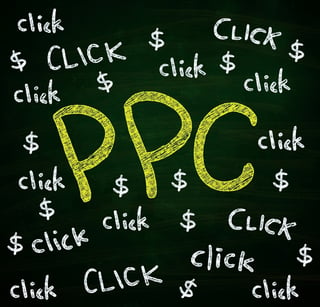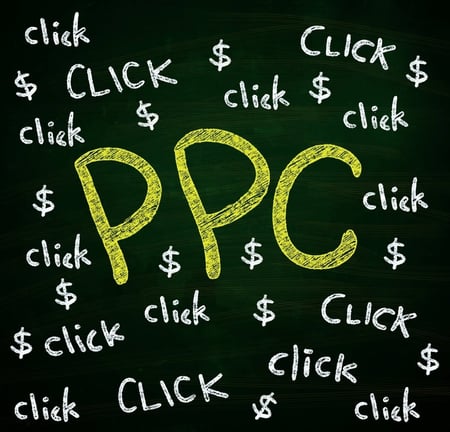 Pay-Per-Click Advertising, or PPC, can be a very effective way to bring new visitors to your website, especially if you’re having trouble ranking organically for all of your desired keyword phrases. We help quite a few of our clients with their PPC, ensuring they work in conjunction with their inbound marketing campaigns. Our interactions explaining AdWords to them has motivated me to write a quick guide that explains what things you should know about AdWords before you start actually spending money. With that in mind, here’s 7 things to keep in mind:
Pay-Per-Click Advertising, or PPC, can be a very effective way to bring new visitors to your website, especially if you’re having trouble ranking organically for all of your desired keyword phrases. We help quite a few of our clients with their PPC, ensuring they work in conjunction with their inbound marketing campaigns. Our interactions explaining AdWords to them has motivated me to write a quick guide that explains what things you should know about AdWords before you start actually spending money. With that in mind, here’s 7 things to keep in mind:
#1 Relevance is Key
Working with AdWords is all about relevance. In order to achieve this, the keyword you are bidding on, the text in the actual ad, and then the landing page you send it to all need to match. If you hit this trifecta, Google will reward you with a high quality score and then you don’t have to bid as much on the particular keyword, compared to those who didn’t earn a high score. Staying relevant with not only save you money on the ads, but it will keep your ROI high as well.
#2 It's not Just About CTR
It’s dangerous to pay attention to only one metric. If only focus on Click-Through-Rates, or CTR, then you’ll only produce ads that garner a lot of clicks. The ads with the highest CTR don’t necessarily have the highest Visitor-to-Lead conversion rates though. It’s a much better practice t o use several metrics in deciding which ads to use, including cost per conversion and conversion rate.
o use several metrics in deciding which ads to use, including cost per conversion and conversion rate.
#3 Ad Extensions Are Necessary
An Ad extensions shows extra business information with your ad, like an address, phone number, store rating, or more a link to your website. Ad extensions may not be required to make an ad live, but they’re definitely necessary to make the most of your PPC. Think of them as a way to get extra information across to your potential customers, without paying for a separate ad.
#4 Use a CTA
Just like with a blog, paid ads need to include a Call-to-Action, or CTA. A CTA on your ad serves two purposes:
- They direct the user to perform a specific action, like going to your website
- They tell the user exactly what they can do, like “Buy Here”
A Great CTA will drive your click, so don’t let it be an afterthought in your paid campaigns.
#5 Negative Keywords are Just as Important
Adding negative keywords to your campaign is just as important as adding your regular keywords you want to bid on. As an example, a plumber may want to add ‘jobs’ as a negative keyword to his PPC campaign or ad group and so he’s telling Google not to show his ad if a user’s search contains the word ‘jobs.’ So ads for the keyword ‘plumbing’ won’t display if a user searches ‘plumbing jobs.’ This plumber isn’t looking to hire and doesn’t want to waste the money he set aside for gaining new business on job hunters! It’s basically a safeguard you put in place to keep you from wasting your money on visitors who aren’t actually looking for your product or service. Because of this, adding them is a must- not an option.
 #6 Mobile is No Longer a Choice
#6 Mobile is No Longer a Choice
Mobile is huge, and not going anywhere. In 2013, Google and Ipsos performed a study which concluded that 70% of the mobile searches surveyed reported that they click to call directly to connect with a business. Mobile searches are looking for your business in real time. That’s still true three years later, and that 70% number has probably grown since then.
#7 It’s NOT All About the Top Two Positions
When focusing on organic ranking with your SEO efforts, the top spot is where it’s at. This is not true for PPC. In fact, for many keyword phrases, it’s much better to bid for the #3 or #4 spot. This can often save you bidding money and get you just as many clicks as the much more expensive #1 spot.
Adwords is not a magic pill that will get you everything you want out of your marketing. It works best when combined with a comprehensive inbound strategy and understanding your conversion rates. When you’re first starting out with digital marketing, there are so many things you need to know and understand that it’s almost impossible to grasp them all. Let Impulse Creative help! Download our free eBook The Beginner’s Guide to Inbound Marketing today to read expert tips and tricks to get the most out of your digital efforts.





